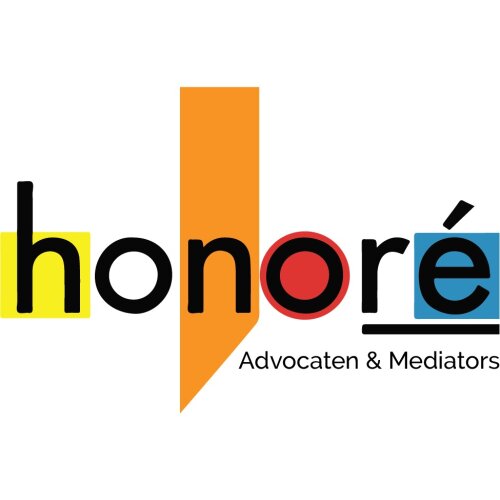Best Employment & Labor Lawyers in Utrecht
Share your needs with us, get contacted by law firms.
Free. Takes 2 min.
List of the best lawyers in Utrecht, Netherlands
About Employment & Labor Law in Utrecht, Netherlands
Employment and labor law in Utrecht, Netherlands, is designed to protect the rights of employees while maintaining fair practices among employers. This legal field encompasses various aspects, including working conditions, compensation, discrimination, workplace safety, and dismissal procedures. The Netherlands is known for its progressive labor laws, influenced by both national legislation and European Union directives. Utrecht, being a vibrant economic hub, mirrors these principles and abides by regulations aimed at ensuring a balanced relationship between employers and employees.
Why You May Need a Lawyer
There are numerous situations where legal assistance becomes significant in the field of employment and labor. Some common scenarios include disputes over contracts or wages, cases of unfair dismissal, discrimination claims, occupational accidents, and conflict resolution between employers and employees. Being well-versed in local laws and regulations, an employment lawyer can guide individuals and businesses through complex legal processes, ensuring compliance and protecting rights.
Local Laws Overview
The employment laws in Utrecht and the larger Netherlands landscape are shaped by comprehensive frameworks that address a multitude of employment facets. Key aspects include:
- Working Hours: The standard workweek is generally capped at 40 hours, with provisions for overtime under specific circumstances.
- Employment Contracts: Contracts must clearly outline employment terms, including duties, salary, and duration. Both fixed-term and permanent contracts are common, with specific rules governing each.
- Minimum Wage: The Netherlands has a regulated minimum wage that is updated bi-annually to reflect inflation and economic conditions.
- Dismissal Laws: Dismissals must be substantiated with adequate reasons, with notice periods and severance pay often required.
- Discrimination and Equality: Anti-discrimination laws protect workers against biases based on age, gender, race, religion, and other factors.
- Trade Unions and Collective Bargaining: Trade unions play a crucial role in collective bargaining, providing a platform for workers to negotiate employment conditions.
Frequently Asked Questions
What is the minimum wage in Utrecht?
As of the latest update, the minimum wage in the Netherlands is regulated bi-annually. For precise figures, visiting the government’s official website or a legal consultant would be beneficial.
How can I handle an unfair dismissal claim?
Unfair dismissal claims typically require demonstrating that the termination lacked a fair basis. Consulting with a labor lawyer can provide insights into the validity of your case and guide you through the dispute resolution process.
What are my rights regarding workplace discrimination?
Dutch laws strictly prohibit discrimination on various grounds. If you believe you've been discriminated against, seeking legal advice and possibly filing a complaint with the Netherlands Institute for Human Rights can be effective steps.
Can my employer alter my contract terms without consent?
Any significant changes to contract terms typically require mutual consent. If changes are proposed without your agreement, it's advisable to consult a lawyer before proceeding.
What should I do in the case of a workplace accident?
Reporting the incident to your employer immediately is crucial. You may be entitled to compensation for injuries, and consulting a legal professional can help navigate the claims process.
Are there specific protections for part-time workers?
Part-time workers in the Netherlands enjoy protections similar to full-time employees, ensuring equivalent pay for equivalent work and non-discrimination in treatment.
How does the probation period work in employment contracts?
Probation periods, if included in employment contracts, typically last one to two months. During this time, either party can terminate the contract with minimal notice.
Is it mandatory to provide severance pay on termination?
Severance pay, also known as transition compensation, is often required in the Netherlands depending on the circumstances surrounding the termination and duration of employment.
How can I resolve a dispute with my employer?
Resolving a dispute can involve direct negotiation, mediation, or formal legal action. Engaging with a lawyer can provide clarity on the best approach for your situation.
What role do trade unions play in Utrecht?
Trade unions facilitate collective bargaining, help settle disputes, and represent members in negotiations with employers to improve working conditions and pay.
Additional Resources
When seeking assistance in employment-related matters, several resources are available:
- Netherlands Institute for Human Rights: Provides information and support regarding workplace discrimination.
- Local Trade Unions: Offer advice and support for members on employment rights and issues.
- Dutch Government Websites: Regularly updated with labor law changes, minimum wage adjustments, and employment rights.
- Legal Aid Bureaus: Provide access to free or subsidized legal services for those who qualify.
Next Steps
If you require legal assistance in employment and labor matters in Utrecht, beginning by contacting a specialized employment lawyer is beneficial. Consider scheduling a consultation to explore your situation and understand your legal options. Additionally, utilize the resources mentioned for preliminary guidance and support. Being proactive and informed is key to navigating any employment-related legal challenges effectively.
Lawzana helps you find the best lawyers and law firms in Utrecht through a curated and pre-screened list of qualified legal professionals. Our platform offers rankings and detailed profiles of attorneys and law firms, allowing you to compare based on practice areas, including Employment & Labor, experience, and client feedback.
Each profile includes a description of the firm's areas of practice, client reviews, team members and partners, year of establishment, spoken languages, office locations, contact information, social media presence, and any published articles or resources. Most firms on our platform speak English and are experienced in both local and international legal matters.
Get a quote from top-rated law firms in Utrecht, Netherlands — quickly, securely, and without unnecessary hassle.
Disclaimer:
The information provided on this page is for general informational purposes only and does not constitute legal advice. While we strive to ensure the accuracy and relevance of the content, legal information may change over time, and interpretations of the law can vary. You should always consult with a qualified legal professional for advice specific to your situation.
We disclaim all liability for actions taken or not taken based on the content of this page. If you believe any information is incorrect or outdated, please contact us, and we will review and update it where appropriate.
Browse employment & labor law firms by service in Utrecht, Netherlands
Utrecht, Netherlands Attorneys in related practice areas.










